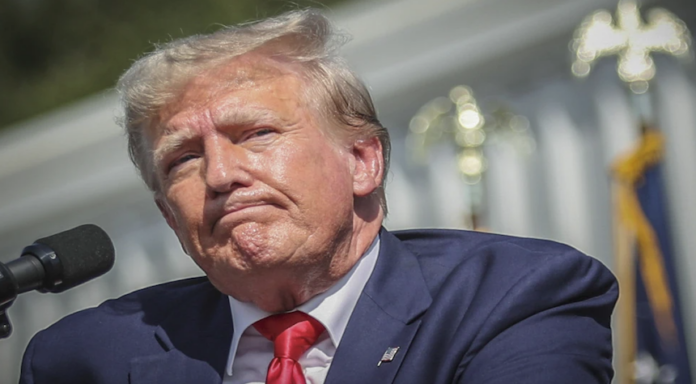George Washington law professor Jonathan Turley has criticized the use of the law against former President Donald Trump in the New York fraud decision, highlighting the unusual application of the statute, especially since there were no victims or financial losses involved.
Jonathan Turley defends President Trump:
“There’s not a single dollar lost by these ‘victims’. In fact, the people that James calls the victims actually wanted to do more business with Donald Trump. They said they made a lot of money.” pic.twitter.com/ac51KJfMC5
— Citizen Free Press (@CitizenFreePres) February 19, 2024
Turley pointed out that the fine imposed, exceeding $455 million with interest, was disproportionate considering that the “victims” involved wanted to continue doing business with Trump and had made a significant profit. Typically, awards are based on the actual damages suffered, which makes this decision appear disconnected from that principle.
In an article discussing the decision, Turley referred to the fine as “greater than the gross national product of some countries.” He also emphasized that the decision posed an obstacle to those who wished to do business with Trump in the future.
Turley further noted that this specific law had not been previously applied in a similar case. The New York statute, which has been in existence for decades, has always been seen as somewhat unique since it does not require the presence of an actual victim or financial loss to justify disgorgement or fines.
Interestingly, even The New York Times concurred that no historical precedent could be found where this statute was used against an individual or company, unless they had committed a criminal offense, gone bankrupt, or caused financial harm to others.
Adding to the complexity, Turley highlighted a problematic aspect known as the “poison pill.” To appeal against such an unjust decision, Trump would be required to deposit the full amount or a bond covering it within 30 days. However, given the substantial sum of $455 million, such a requirement presents a significant challenge, as Trump would either have to declare bankruptcy or sell off assets at distressed prices.
Furthermore, the judge’s order prevents Trump from borrowing from any financial institution in New York for three years, which adds another unfair element to the situation. These circumstances make it unlikely for Trump to be able to obtain a bond under such risky conditions.
Turley argued that this decision has shaken the confidence of anyone concerned about the fairness and integrity of the New York legal system.
Many individuals, including investors like Kevin O’Leary and Grant Cardone, criticized the decision, expressing concerns about how it may negatively impact future investments in New York. Both asserted that they would refrain from investing in the state due to this ruling.
Governor Kathy Hochul attempted to alleviate worries among businesspeople by stating that this ruling only applied to Trump. Turley, however, pointed out that this approach is part of the problem.
It is evident that this case would have never reached this point or resulted in such a massive fine if it were not for political motivations.
For instance, Turley highlighted the disparity in treatment between organizations like the NRA, facing scrutiny for financial irregularities, and others like Black Lives Matter or Al Sharpton’s National Action Network, who face little risk in similar controversies.
If discretion is the only protection in New York, wielded by figures like Attorney General Letitia James, few businesses would feel secure about their future. The implicit message is that blind and equal justice can only be expected as long as you do not cross the Democrats in power.
This uncertainty poses a daunting prospect for businesspeople and goes against the very principles of the “rule of law” that we should adhere to.
Habba: Within 30 days, even if we choose to appeal this, which we will, we have to post the bond, which is the full amount and then some. We will be prepared to do that. pic.twitter.com/6zsDHB4LmR
— Acyn (@Acyn) February 19, 2024
Trump’s attorney and spokesperson, Alina Habba, remained defiant, declaring their intention to come up with the required bond while denouncing the decision as disgraceful. She characterized it as a scare tactic and argued that they were targeting the wrong person.




